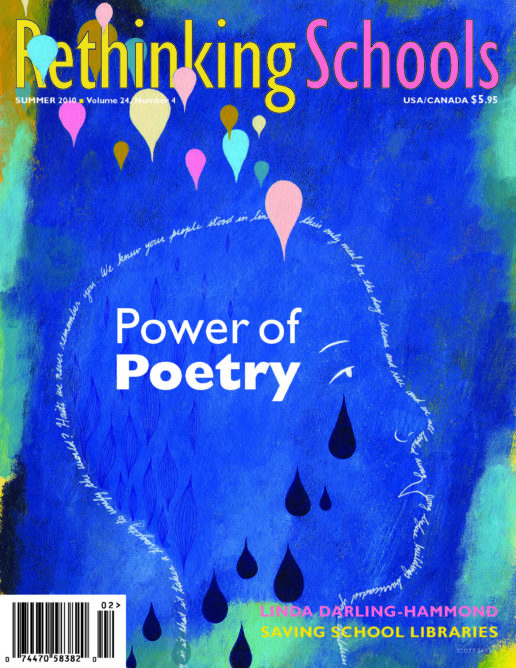Preview of Article:
Pain and Poetry – Facing Our Fears
Illustrator: Scott Bakal
A police car races past our school. Its siren pierces the reverie my students have settled into during our writing class. A number of students push back from their computers and lift their hands in mock surrender. Their actions appear to be involuntary. One student remarks, “Hey everybody, our ride’s here.”
The students crack up. I crack up along with them. No more serious writing this morning. The police car has run off with my students’ concentration and left me wondering about the negative experiences that underlie the laughter and poses of surrender.
I teach at a high school completion/GED program, the Portland Youth Builders (PYB), in one of Portland, Ore.’s poorest neighborhoods. Many of my students have spent time in jail, two wear house arrest bracelets around their ankles, and few have had positive experiences with the police.
I decide that if I am going to help my students address some of the barriers that stand between them and the dreams for a better future that brought them to my classroom, I need to come up with effective strategies to help them heal from wounds masked by their laughter.

